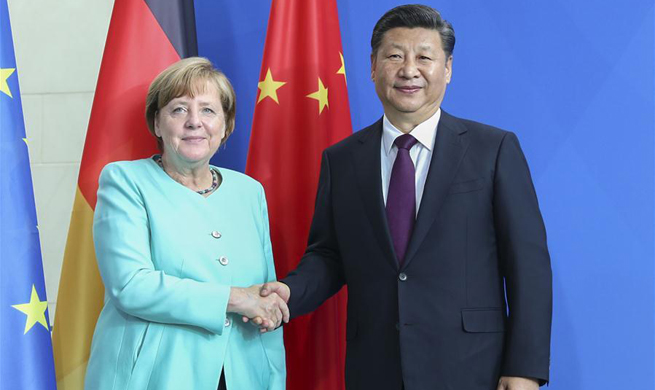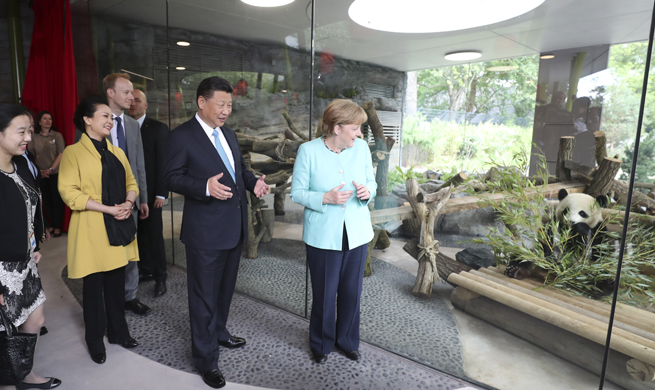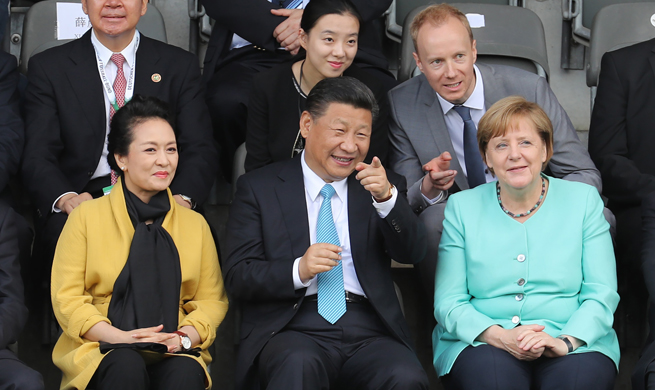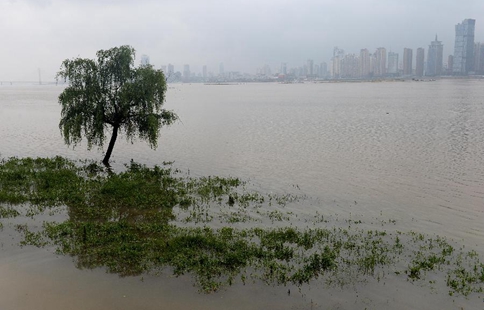by Tian Dongdong
BRUSSELS, July 6 (Xinhua) -- As Donald Trump kicks off his second official trip to Europe on Wednesday in Poland, an awkward scenario may await the U.S. president and his "America First" policy -- he and his European colleagues may talk past each other during his visit.
Prior to the trip, the White House laid out three primary objectives: to promote U.S. prosperity, to protect U.S. interests, and to provide U.S. leadership. That sounds rather "local" compared with the topics European leaders have picked for Trump during the G20 Summit in Germany: climate change, free trade and mass migration.
In fact, the risk of not being on the same page is just the tip of the iceberg. The presumably strong transatlantic relations, fostered with the blood, sweat and tears of many centuries, are now plagued with mistrust -- partly if not wholly -- attributed to the seeds of discord sowed across the Atlantic by the "America First" policy.
The seeds have been planted mainly in three areas.
For starters: in their shared values. The "America First" policy not only stains Washington's self-claimed image as a world leader, but also weakens the common values of the United States and Europe, which serve as cornerstone for the ties binding them for centuries.
With a lifetime of negotiating experience as a businessman, Trump is not loath to turn diplomacy into commerce. A lot of things that used to be a natural extension of transatlantic cooperation are now being short-changed in the name of "America First".
Taking NATO as an example, Trump has repeatedly told his European allies: "If you want security, you pay for it." That is really baffling to Europeans who are habituated to Washington acting as a "protector of peace."
Secondly, the sentiment of mistrust is high in the trade area. Trying to return millions of jobs to the United States, the "America First" policy adores trade deals that are, first and foremost, "fair" to the United States and abhors those "unfair" to its workers, brushing aside the interests of other countries, including Washington's European allies.
As a result, verbal shots on trade are flung across the Atlantic. When Washington threatened to slap high tariffs on German exports, Berlin warned of possible tit-for-tat retaliation. When Washington trashed multi-trade agreements, European countries endorsed continued global trade.
Last but not least, disagreement also erupts from climate change issue. The White House's announcement on June 1 to withdraw from the Paris climate accord has been resoundingly condemned by European countries.
During his stay in Poland, Trump is scheduled to speak to 12 Central European, Baltic, and Western Balkan leaders. His remarks will highlight, for instance, the first shipments of U.S. liquefied natural gas into Poland last month, according to the White House.
The speech is quite a symbolic move of Trump's "America First" energy plan, which aims to eliminate burdensome regulations on the U.S. energy industry.
For the Trump administration, climate change is above all a trade issue. But for some European countries like Germany and France, who played leading role in forging the Paris climate accord, the issue is an existential challenge.
"We cannot wait until every last person on Earth has been convinced of the scientific proof," said German Chancellor Angela Merkel in the run-up to the G20 summit, with French President Emmanuel Macron asking Washington to "return to reason" on climate change.
Shortly after Trump's first visit to Europe in May, Merkel said pointedly that Europe "really must take our fate into our own hands".
The "America First" policy seems to have alienated European allies and might result in "America Alone" in Europe.

















